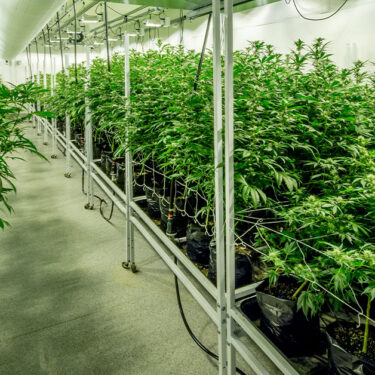Pharmacies in the state of Georgia can now legally sell certain cannabis products at their counters under a new law that went into effect Oct. 27. It is the first state in the U.S. to permit pharmacy sales of medical marijuana, which will be limited in Georgia to low-dose THC products like THC oil and capsules, CNN reported.
Featured Solutions
Patients in Georgia will need a state-issued Low THC Oil identification card, which must be obtained from a physician, in order to purchase cannabis products at one of the state’s independent pharmacies that offer it. It will present a new type of risk for these pharmacies — and one that their existing insurance policies such as Products Liability Insurance may or may not cover, said Jason Scheurle, National Product Leader, Cannabis, Burns & Wilcox, based in Philadelphia, Pennsylvania.

Whether it is through adequate insurance policies or setting up additional security measures, all of those things are very beneficial for a new venture.
“From an insurance perspective, you right away start to think about the mix of exposure. This is not just a cannabis dispensary; it is more than that,” he said. “Does their standard, existing coverage potentially pick this up, or are they going to have an exclusion on the sale of THC? It really remains to be seen how the industry shapes to this.”
Obtaining the right Cannabis Insurance policies will be a priority for these businesses, along with implementing rigorous risk management safeguards, said Leena Malik, Senior Underwriter, Commercial Insurance, Burns & Wilcox, Toronto, Ontario. “Whether it is through adequate insurance policies or setting up additional security measures, all of those things are very beneficial for a new venture,” Malik said.
Georgia pharmacists ‘the pioneers’ on new distribution
Georgia is one of 40 states where cannabis is legal for medical purposes, while 23 states and the District of Columbia have legalized cannabis for recreational use, according to Marijuana Business Daily. According to PBS, Georgia lawmakers approved pharmacy distribution of low-THC products in 2019 but it was not until September that specific distribution regulations were approved. By early October, almost 120 pharmacies in the state had agreed to sell medical marijuana products from Botanical Sciences, which is one of Georgia’s two licensed production companies, and most of the state’s 400-plus independent pharmacies were expected to participate, PBS reported.
“They seem to be the pioneers right now on this,” Scheurle said, noting that he is not aware of other states currently pursuing legislation to allow medical marijuana dispensing at pharmacies.
Some of the barriers to further pharmacy expansion in the U.S. could include ongoing concerns with the federal illegality of cannabis and the subsequent difficulty accessing banking services, he said. Most U.S. banks will not service cannabis companies due to its federal status as illegal, though Congress has a bipartisan cannabis banking bill in the works, Reuters reported Sept. 27.
“The banking could be part of why the bigger operations are choosing not to get involved, or the simple fact that it is illegal, and they have decided for now they cannot take the risk,” Scheurle said. “Although it does not seem like this is going to happen, at any moment you could have the federal government deciding there are illegal operations taking place and come shut everybody down. That scares off numerous insurance carriers, unfortunately. It could be the same thing with pharmacies. Even though [medical marijuana] is legal in Georgia and they set this up, it is still federally illegal.”
In Canada, where cannabis was legalized for recreational use in 2018, Shoppers Drug Mart previously offered medical cannabis distribution but recently transferred its patients to a biopharmaceutical company, Global News reported in March. The retail pharmacy chain did not give a reason for the change, according to the news outlet. While pharmacists in the country are not currently dispensing medical cannabis products, they are encouraged to work with their patients on medication management, according to the Canadian Pharmacists Association.
“When cannabis was legalized, Shoppers Drug Mart did launch a cannabis program where they were taking scripts from Health Canada and dispensing, but they have since shut that down,” Malik explained.
Pharmacies could be held liable for product issues
According to CNN, pharmacies selling THC products in Georgia will need to track their sales, they can only sell up to 20 ounces of the product, and they may not sell to individuals who live outside of the state of Georgia. As with any business offering cannabis products, these pharmacies could face claims or lawsuits from patients who have negative reactions, receive the wrong dose or product, or experience other incidents.
In February, regulators in Vermont pulled marijuana products from five retail stores after a consumer who used it got sick; the marijuana was found to be potentially contaminated with a pesticide, the Associated Press reported. In October of 2022 in California, a class-action lawsuit was filed that accused a cannabis company of purposely mislabeling products to show a higher level of THC than they contained, KIRO 7 reported.
A pharmacy’s potential liability for these types of issues with cannabis products is “kind of a gray area,” Scheurle said. “You would think it would fall back on the manufacturer of the product but it is not out of the question that the pharmacy selling it could become potentially liable also,” he said. “There could be potential Products Liability claims over bodily injury or sickness due to taking the THC products. Now their Products Liability exposure is much, much different than it was.”

There could be potential Products Liability claims over bodily injury or sickness due to taking the THC products. Now their Products Liability exposure is much, much different than it was.
Pharmacies that begin dispensing cannabis products should find out whether their Products Liability Insurance, Product Recall Insurance, Commercial General Liability (CGL) Insurance, Commercial Property Insurance and Professional Liability Insurance policies would cover cannabis-related claims, Scheurle said. “Cannabis is more than likely going to be excluded on their Products Liability Insurance,” which could otherwise help pay for legal defense, medical expenses, settlements, and more, he said. “There could also be liability on the part of the pharmacist — being clear about instructions and how much to take,” for example, he said.
“It will be interesting to see how that develops on the pharmacist and medical side,” Scheurle said, adding that “claims often tie in everybody.”
Beyond pharmacies, the sale of cannabis products can complicate the risk landscape in other environments, as well. For example, a brewery in Des Moines, Iowa, recently became the first in the state to offer a cannabis-infused drink, KCCI reported in June. A bar or restaurant that offers cannabis-infused beverages could have a “similar potential issue” when it comes to insurance coverage, Scheurle said.
“We have very similar challenges right now in the states that are allowing bar-restaurant breweries to sell THC beverages,” he said, pointing to insurance carriers that would exclude these drinks. “It is a unique challenge. If they decide to introduce a THC drink to their menu, now you have a very complicated claim environment in the event of a loss. If a customer had two beers and two THC drinks, who is going to determine what caused that loss at the end of the day? Was it the alcohol, the THC, or a mix of the two? That is very tricky right now.”
In Canada, cannabis coverage would be excluded for any business that is not allowed to sell these products. For example, vape shops would not be authorized to sell cannabis vaping products and would not have coverage for cannabis-related claims in the event they did, Malik said. “All of those stores would have a cannabis exclusion,” she said.
Managing risks in cannabis industry
Earlier this year, an independent pharmacy in New Jersey was working to add a marijuana dispensary to its second floor, PhillyVoice reported in January. The store’s recreational marijuana license was approved in August, and the owner told news outlets he expected it to be the first cannabis dispensary to operate under the same roof as a pharmacy, TAPinto Camden reported.

It is a highly hazardous and attractive product for theft and vandalism. They need to take their risk management seriously.
From pharmacies to retail stores, any business that begins offering cannabis products should be clear with their insurance broker about their operations to ensure they are properly protected, Scheurle said. “After that, it is about following those state compliance mandates and your insurance carrier’s requirements as well — the quality control, the product testing, and ensuring the products were manufactured by a licensed business that has also done their quality control and testing,” he said. “All of the compliance matters need to be handled appropriately.”
Selling cannabis comes with its own unique risks, including a higher chance of being targeted for theft, especially for businesses that operate on a cash-only basis because they cannot work with banks, he added.
“It is a highly hazardous and attractive product for theft and vandalism,” Scheurle said. “They need to take their risk management seriously. It is a high-value product, it generates a lot of revenue, and the banking solutions are not widespread. Individuals with some bad intentions may decide to target the premises for theft and vandalism-related activity.”
In the U.S., cannabis business owners often use specialized third-party security firms to help evaluate and address any security weaknesses. “They come in and do entire premises reviews,” Scheurle said. “Your risk management needs to be one of your primary focuses all along.”

Whether it is through adequate insurance policies or setting up additional security measures, all of those things are very beneficial for a new venture.
Theft is also a concern for cannabis businesses in Canada, Malik said. “Theft is the number one peril,” she said, pointing to “break-and-enters that tend to happen overnight.”
“Theft can happen, whether that be cash on hand on the premises or the product itself,” she said. “That can, of course, happen from an external party, but it is not to say that it does not happen internally in an organization as well. Background checks on employees are very important.”
Cannabis business owners in Canada are increasingly turning to nonprofit industry associations to learn from their peers and help manage their risks, according to Malik. “They will sit around a table and discuss new opportunities in the space, what they are doing well and not doing well,” she said. “They are always trying to figure out how they can best present themselves in the marketplace and how to best protect themselves. Joining one of these associations can be very beneficial.”






